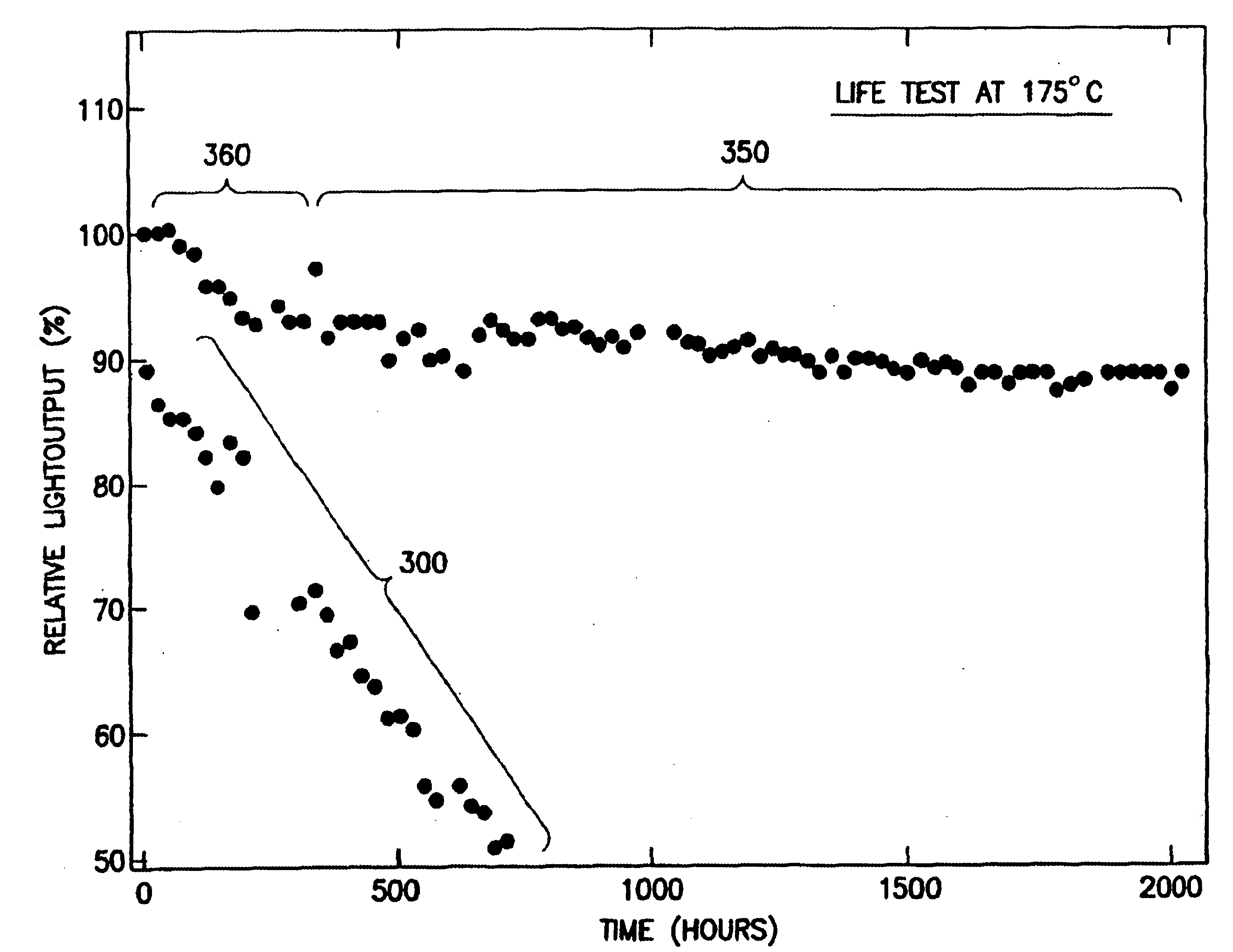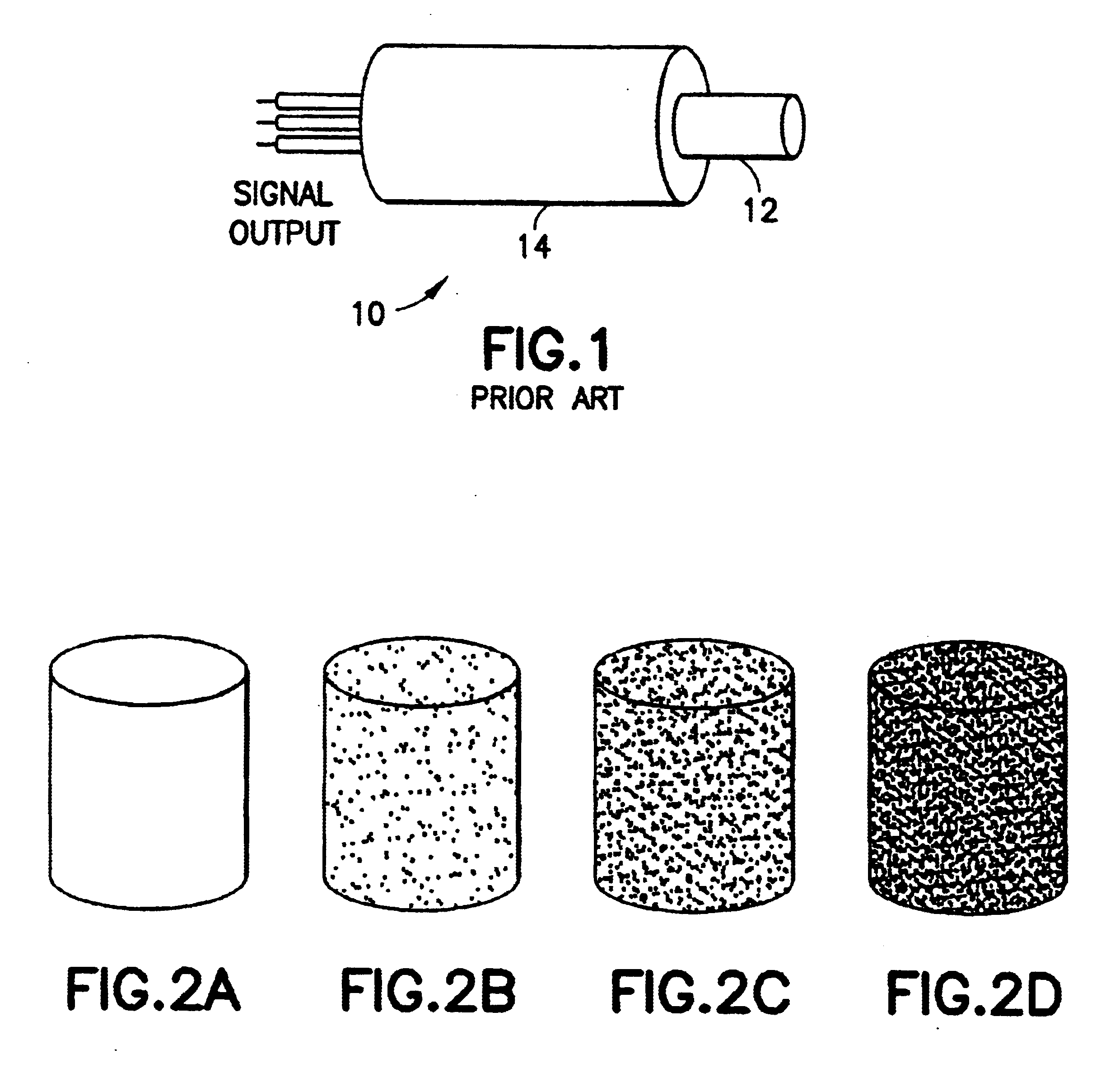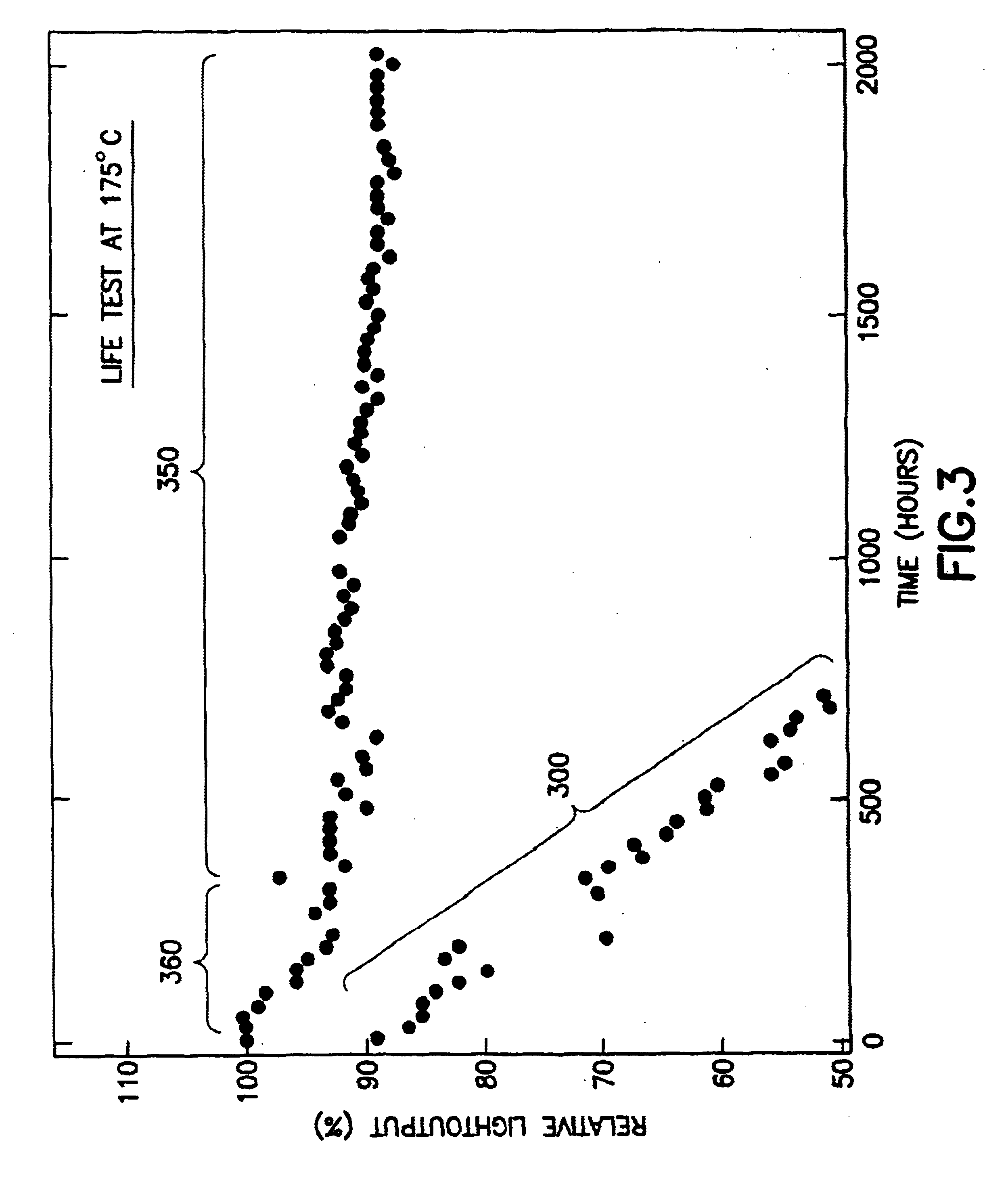High temperature scintillator
a high-temperature, scintillator technology, applied in the direction of instruments, nuclear engineering, nuclear elements, etc., can solve the problems of inability to withstand borehole temperatures, host polymer has a melting point of only about 75° c, and many conventional plastic scintillators generally do not exhibit acceptable mechanical and optical properties, etc., to achieve stable properties and improve optical properties
- Summary
- Abstract
- Description
- Claims
- Application Information
AI Technical Summary
Benefits of technology
Problems solved by technology
Method used
Image
Examples
Embodiment Construction
[0032]In one aspect of the present invention, improvements were made in plastic scintillator materials by modifying the formulation of the materials in response to observation made with respect to the high temperature behavior of the materials. For example, improved formulations are described that correspond to observations made regarding the purity of scintillator components as it relates to scintillator efficiency, fluorescent dye influence on glass transition temperature (Tg), and the behavior and stability of dyes and matrix formulations during conditions that correspond to borehole operating environments.
[0033]An improved plastic scintillator material demonstrates good stability at continuous operating temperatures of at least 175° C. The scintillator material is formulated using a copolymer derivative of styrene such as, for example, a monomer of p-t-butylstyrene (PTS), also referred to as 4-1(t-butyl)-vinyl benzene, having a CAS No. 1746-23-2 (a CAS number is a numeric design...
PUM
 Login to View More
Login to View More Abstract
Description
Claims
Application Information
 Login to View More
Login to View More - R&D
- Intellectual Property
- Life Sciences
- Materials
- Tech Scout
- Unparalleled Data Quality
- Higher Quality Content
- 60% Fewer Hallucinations
Browse by: Latest US Patents, China's latest patents, Technical Efficacy Thesaurus, Application Domain, Technology Topic, Popular Technical Reports.
© 2025 PatSnap. All rights reserved.Legal|Privacy policy|Modern Slavery Act Transparency Statement|Sitemap|About US| Contact US: help@patsnap.com



